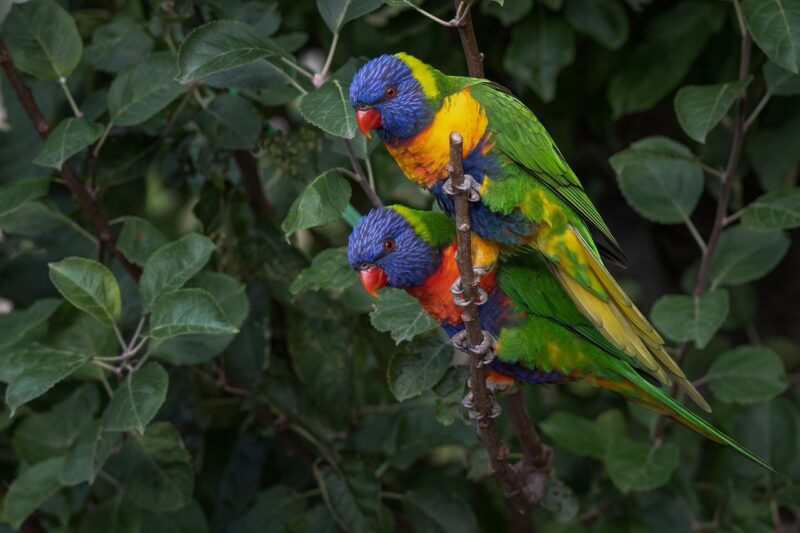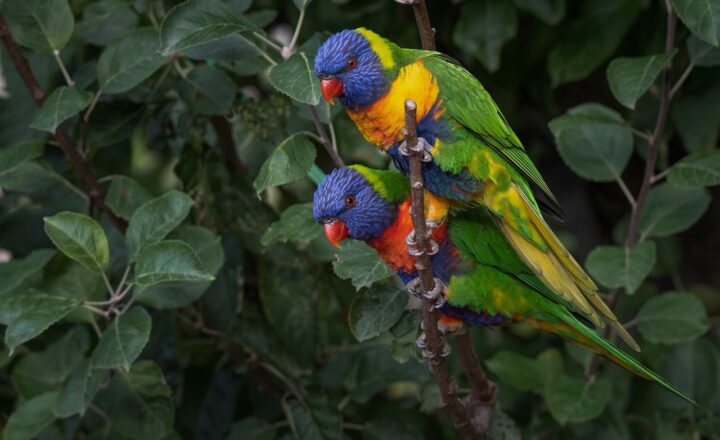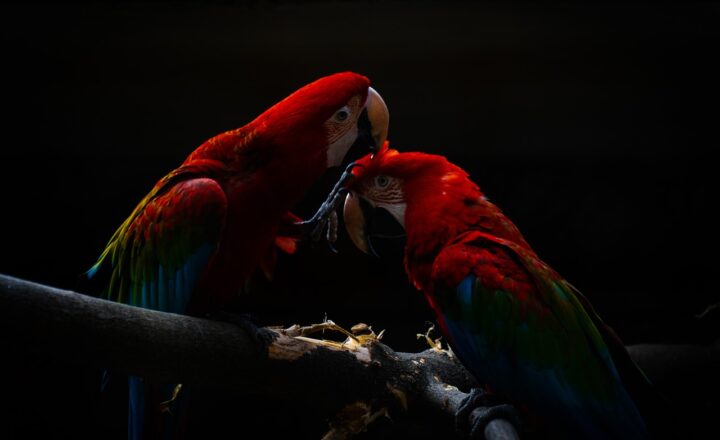Parrot Care for Beginners: Everything You Need to Know to Keep Your Bird Happy and Healthy
November 13, 2024

Welcoming a parrot into your home can be an incredibly rewarding experience, filled with joy, companionship, and the delightful sounds of chirps and chatter. However, it’s important to realize that keeping a parrot is a significant commitment that requires time, care, and knowledge. This guide aims to provide beginners with everything they need to know to keep their feathered friends happy and healthy.
1. Choosing the Right Parrot
The first step in becoming a parrot owner is selecting the right species. Parrots come in various sizes, colors, and personalities. While many people are drawn to larger birds like Macaws and African Greys, smaller parakeets or cockatiels can also make wonderful pets, especially for first-time owners.
Here are some popular parrot species to consider:
- Budgerigar (Budgie): Small, social, and generally easy to care for, budgies are an excellent choice for beginners.
- Cockatiel: Known for their sweet personalities and beautiful crests, cockatiels are affectionate and enjoy socializing.
- Amazon Parrot: While they can be boisterous, Amazon parrots are known for their engaging personalities and ability to mimic human speech.
- African Grey: Highly intelligent and known for their impressive vocal skills, African Greys require more social interaction and mental stimulation.
- Macaw: Majestic and colorful, macaws are larger birds that need significant space and attention, making them best for experienced owners.
Before making a decision, take the time to research each species’ characteristics, temperament, and care needs. Consider visiting local bird rescue organizations or shelters to find a parrot in need of a loving home.
2. Setting Up Your Parrot’s Home
Creating a suitable environment for your parrot is crucial for its health and happiness. Here are some essential considerations when setting up your bird’s home:
- Cage Size: Ensure the cage is spacious enough for your parrot to move around comfortably. As a general rule, the wider the cage, the better. A good guideline is to choose a cage that is at least two times the wingspan of your bird.
- Perches: Provide a variety of perches made from natural wood to promote healthy foot development. Avoid plastic perches that can harm your parrot’s feet.
- Toys: Parrots are intelligent creatures that require mental stimulation. Offer a range of toys to keep them entertained, such as puzzles, climbing structures, and shreddable toys.
- Food and Water Dishes: Use sturdy, easy-to-clean dishes for food and water. Fresh water should always be available, and food should be changed daily to ensure freshness.
- Location: Position the cage in an area where your parrot can be part of the family, but away from direct sunlight, drafts, and extreme temperatures.
By providing a comfortable and stimulating living environment, you’ll set the stage for a happy parrot.
3. Nutrition: What Your Parrot Should Eat
Diet is a critical component of your parrot’s health. A balanced diet will keep your bird vibrant and energetic. Here’s what you need to know about parrot nutrition:
- Pellets: High-quality pelleted diets provide balanced nutrition. Ensure they make up a significant portion of your parrot’s daily intake.
- Fresh Fruits and Vegetables: Supplement your parrot’s diet with fresh produce. Common options include leafy greens, carrots, apples, and berries. Be sure to wash them thoroughly and remove pits and seeds that could be toxic.
- Seeds and Nuts: While enjoyed by parrots, seeds should only be given as treats in moderation due to high-fat content. Nuts can be a healthy snack but should also be offered sparingly.
- Avoid Toxic Foods: Be aware of foods that are harmful to parrots, including chocolate, avocado, and caffeine. Always research before introducing new foods to your parrot’s diet.
Maintaining a well-rounded diet will promote your parrot’s health and longevity.
4. Socialization and Interaction
Parrots are highly social animals that thrive on interaction with their human companions. Here are some tips to enhance your bonding experience:
- Daily Interaction: Spend time with your parrot every day. This can involve talking, playing, or simply being near them. Regular interaction increases their comfort level with you.
- Training Sessions: Teach your parrot simple commands and tricks. Positive reinforcement through treats and praise can strengthen your bond and keep them mentally engaged.
- Free Flight Time: If safe, allow your parrot out of the cage for supervised exercise. This helps maintain physical health and gives them a chance to explore their environment.
- Understanding Body Language: Learning to read your parrot’s body language is crucial. Understanding when they are happy, scared, or stressed can help tailor your interaction to meet their emotional needs.
When you invest time in socialization, your parrot will become more confident and well-adjusted.
5. Health Care and Grooming
Ensuring your parrot’s health requires regular care and preventative measures:
- Veterinary Checkups: Schedule regular checkups with an avian veterinarian to monitor your bird’s health and catch any potential issues early. Annual health checks are recommended for optimal care.
- Beak and Nail Trimming: Trim your parrot’s nails regularly to prevent overgrowth and potential injury. In some cases, you may need professional help for beak trimming if it becomes too long.
- Bathing: Parrots need regular bathing to keep their feathers clean and healthy. You can mist them lightly with water or provide a shallow dish for them to bathe in.
- Watch for Signs of Illness: Be vigilant about changes in behavior, appetite, or droppings, as these can be signs of illness. Quick attention to these changes can lead to better outcomes if a problem arises.
Providing routine care minimizes health risks and maximizes lifespan.
Conclusion
Becoming a parrot owner is a wonderful journey that can greatly enrich your life. By choosing the right species, creating a healthy environment, providing proper nutrition, fostering social interaction, and ensuring health care, you can provide a loving and stimulating home for your parrot.
With proper care, your parrot will thrive, bringing joy and companionship into your life for years to come.
Keep in mind that each bird has its own unique personality and preferences. The more you learn about your feathered friend, the better you’ll be able to cater to their needs. Enjoy the delightful experience of caring for your parrot, and remember that patience, love, and dedication are the keys to a happy and healthy bird.






